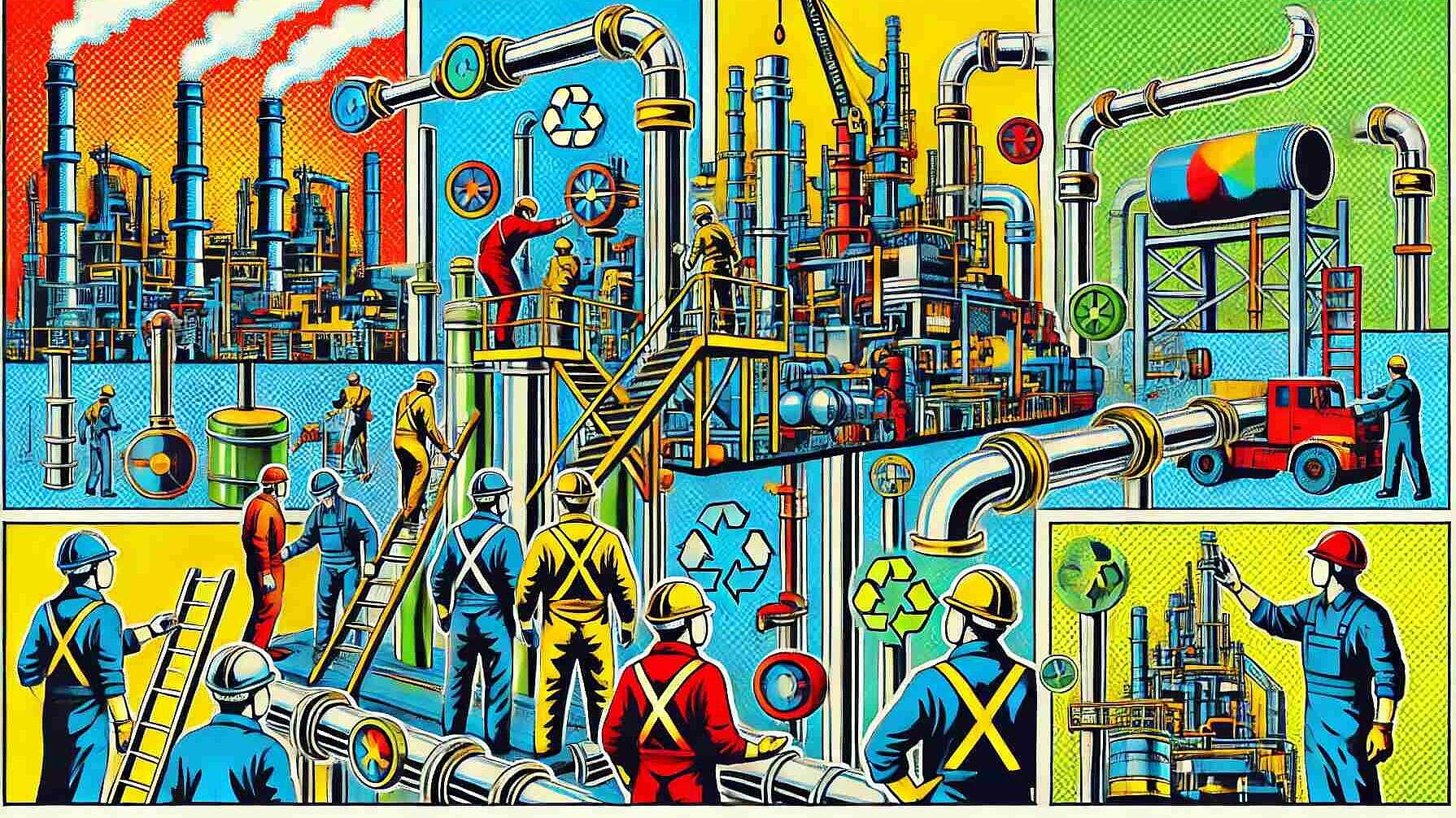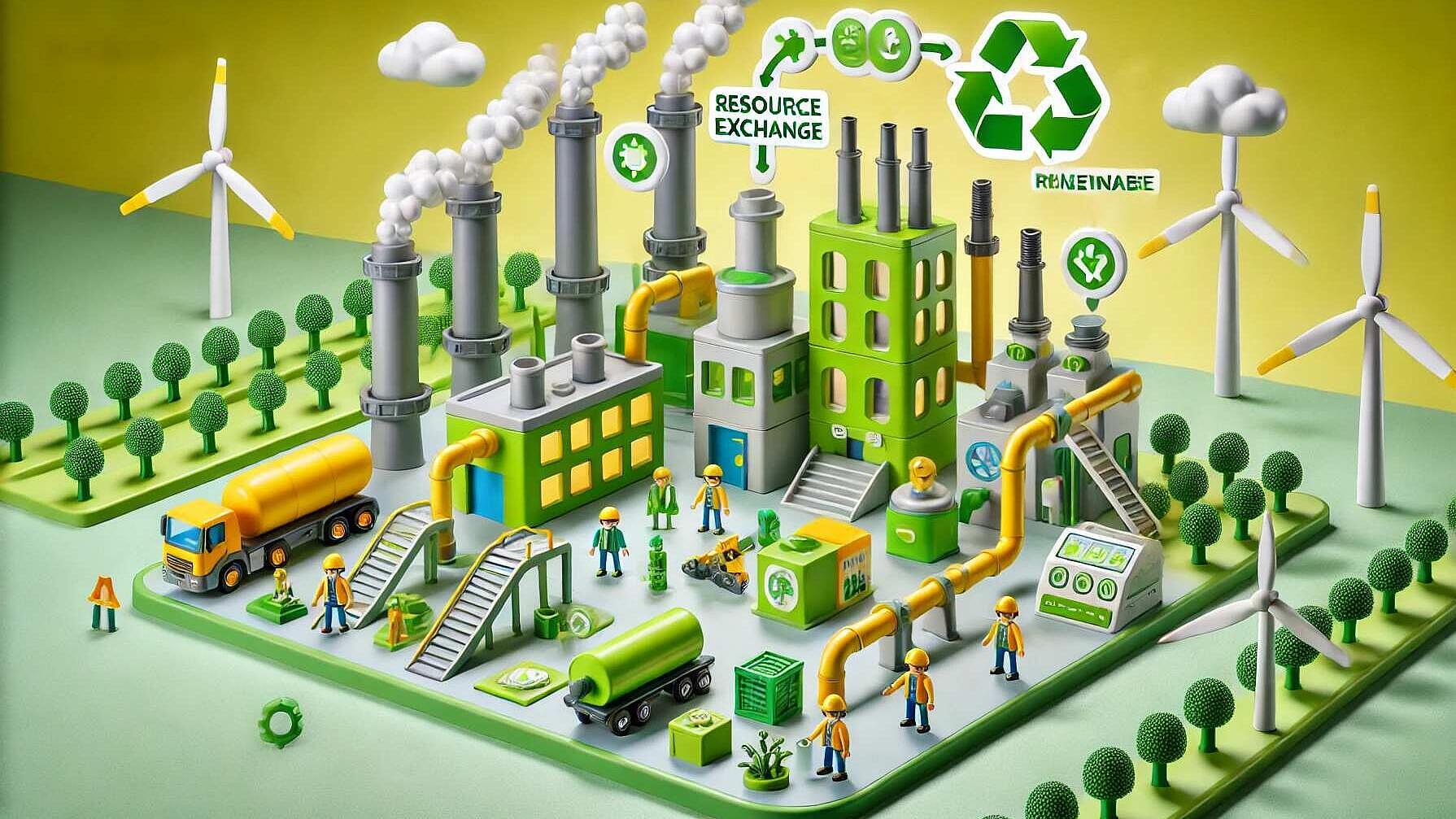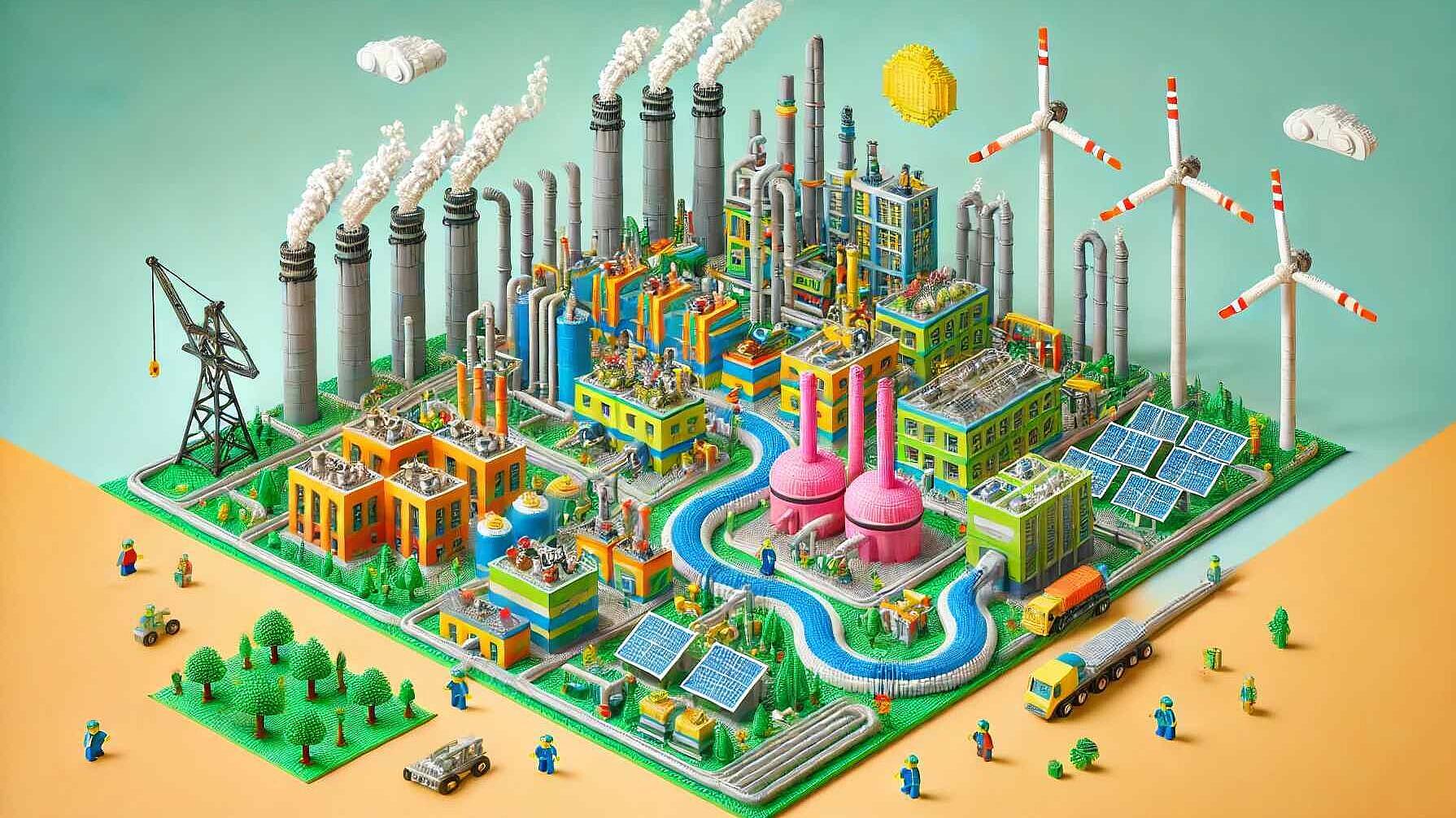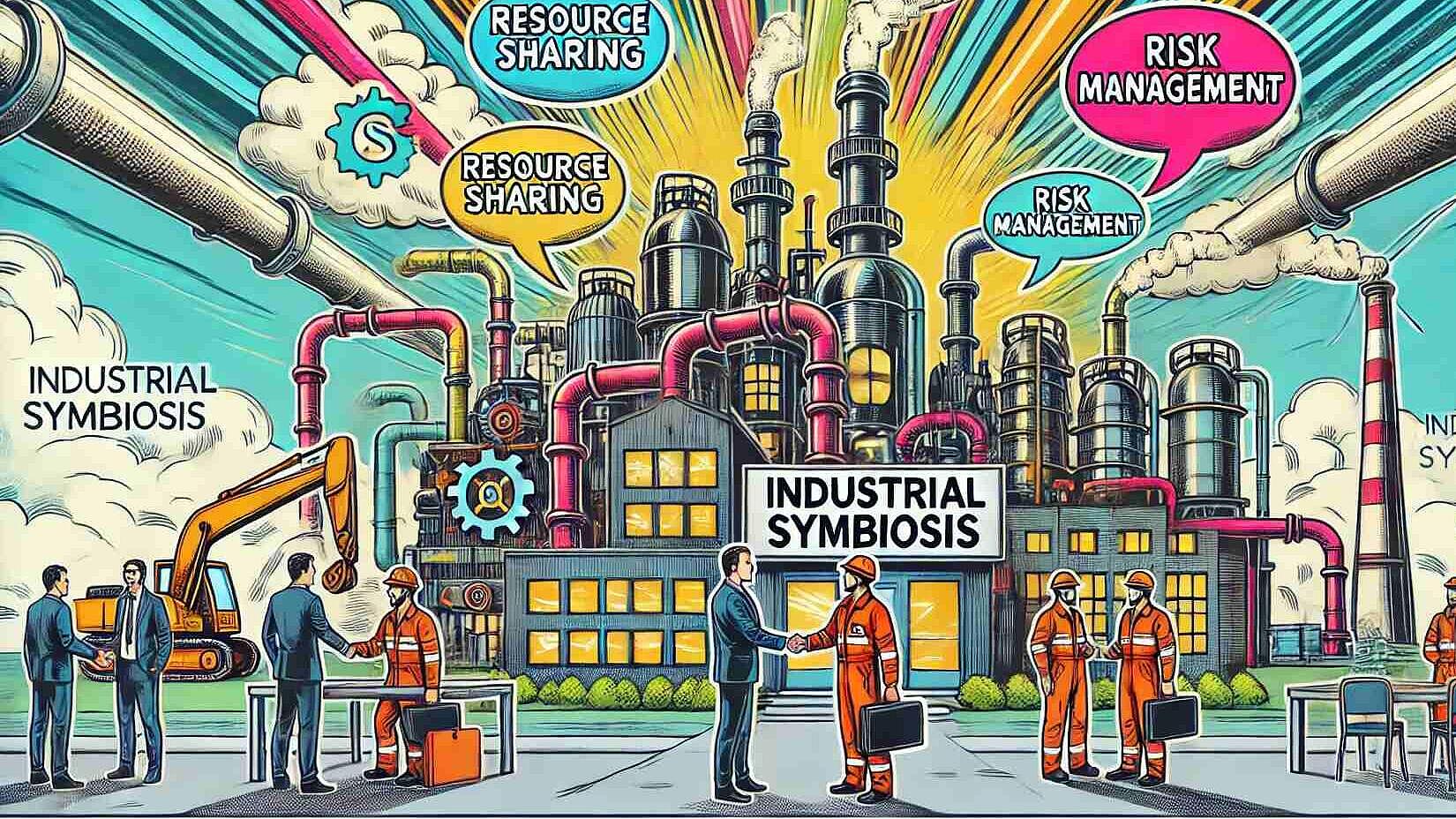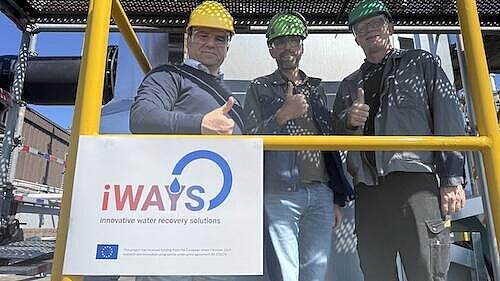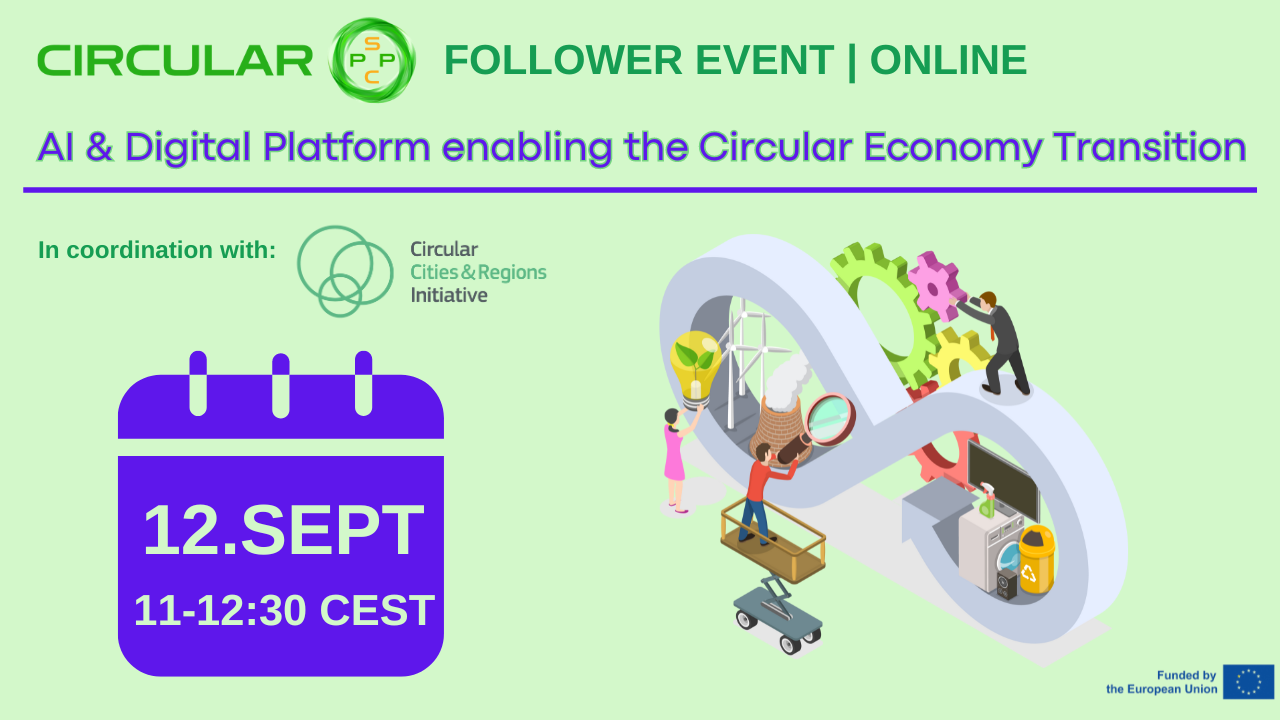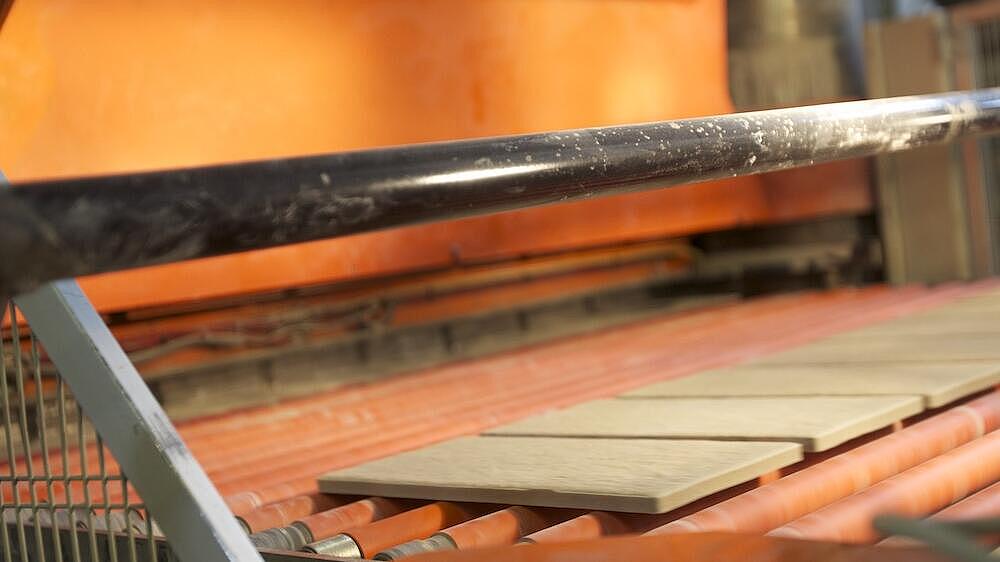 Circular Economy
Circular EconomyCircular Economy
The paper discusses the role of industrial symbiosis (IS) in promoting sustainable practices within the industry by facilitating the exchange of waste materials, energy, and by-products between companies. It details the European Union-funded CORALIS project's efforts to advance IS through stakeholder engagement and three case studies in Basauri, Spain; Linz, Austria; and Izmit, Turkey. Although IS offers environmental and economic benefits, it faces obstacles such as regulatory issues, information sharing gaps, and resistance to change from traditional practices. The CORALIS project employs a socio-technical analysis model, SAMBA, coupled with STEEP indicators to identify factors affecting IS implementation. Case studies demonstrate the importance of transparent communication, economic incentives, formal agreements, and stakeholder collaboration in overcoming barriers to IS adoption. The project highlights the need for strategic planning and financial support in establishing successful IS initiatives. Active engagement is crucial in building trust, enhancing collaboration, and fostering long-term commitments to IS, moving the industry towards a more circular and resilient future.
Read Full articleHarnessing Industrial Symbiosis For Sustainable Growth and Circular Economies
Industrial symbiosis (IS) promotes sustainability via resource-sharing among firms, yet faces challenges in implementation due to economic, regulatory, and technological barriers. Future success depends on innovation, policy support, and cross-sector collaboration to overcome these hurdles.
Read Full articleIndustrial Symbiosis: A Pathway to Sustainable Industry through CORALIS
The CORALIS project demonstrates how industrial symbiosis (IS) facilitates decarbonization by enabling cross-industry collaboration, leading to resource optimization and sustainability enhancement across European demonstrators. Key findings highlight the importance of managerial frameworks, trust, stakeholder engagement, and local authority support in successful IS implementation.
Read Full articleIndustrial Symbiosis: A Transformative Approach for Sustainable Industry
The CORALIS report on industrial symbiosis (IS) highlights its benefits, like reducing CO2 emissions and waste through cross-sector collaboration. Successful cases and digital platforms facilitate IS, but adoption challenges persist. Future IS policies could further sustainability and create jobs in new industries.
Read Full articleBuilding Lasting Symbiotic Relationships: Business Agreements in Industrial Symbiosis
The article addresses the importance of structured business agreements in industrial symbiosis (IS), categorizing IS relationships by engagement level and outlining key considerations for agreements including ownership, responsibilities, liabilities, risk management, governance, contractual terms, and adaptability based on the CORALIS project.
Read Full articleTop Circular Economy Trends & Innovations
This study explores the circular economy's waste-to-resource concept and analyzes startups impacting it. Key trends include waste upcycling, IoT-optimized waste management, AI-powered sorting, and blockchain for traceability. Circular economy startups are prominent in Western Europe, with growing activity in the US and Asia, particularly China and India.
Read Full articleInnovative system recovers heat, water and material from industrial waste streams
The innovative Heat Pipe Condensing Economiser (HPCE) has been successfully commissioned at Alufluor AB in Sweden, demonstrating that significant heat, water, and material recovery is possible using current materials and knowledge. This milestone marks a major advancement in energy savings in the chemical process industry, showcasing the potential for substantial gains beyond incremental improvements. The project involved considerable engineering and infrastructure investment, leading to an operational capacity of 650kW from exhaust recovery since August 1st, and is applicable across various industries, particularly in regulated sectors.
Read Full articleEvent: AI & Digital Platfrom enabling the Circular Economy Transition
CircularPSP, a Horizon Europe-funded project, unites eight cities to transition to a Circular Economy, addressing sustainability by investing €5.64 million in R&D. It fosters municipal innovation through AI, collaboration, a follower network, and hosts events discussing circularity challenges and solutions.
Read Full articleJuly Quiz OPEN - EnerWhizz: The Electrifying New Mobile Quiz from EEIP
EnerWhizz, launched by EEIP, is a mobile quiz game promoting energy innovation knowledge through fast-paced yes-or-no questions. Top scorers win monthly prizes. The game, based on the EU-funded EENOVA project, aims to educate on energy transition technologies, policies, and best practices.
Read Full articleThe Mechanics of Ceramics: How the Industry Can Decarbonize
The ceramics industry in Europe has made significant progress in energy optimization, cutting consumption by half in 25 years. Challenges persist, including reliance on carbon-emitting methane burners and raw material imports. Innovations and regulatory measures aim to decrease emissions and resource waste, promoting sustainable manufacturing across the sector's 338,000 jobs and €27.8 billion contribution to the EU economy.
Read Full article